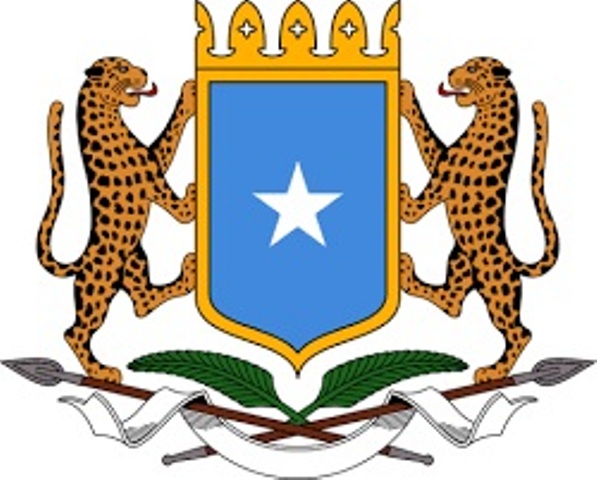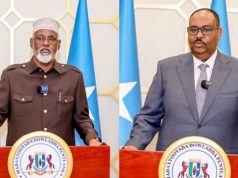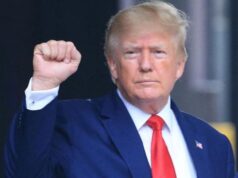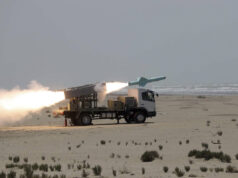
Open Letter to Somali Political Leaders “on Peace, Security and Election”
The members of the National Economic Advisors (NEA) of Somalia are very concerned
about the deadlock in the 2021 elections process and its attendant consequences. The
NEA is part of the National Economic Council (NEC) established in mid 2018, which consists
of the President, PM, Economic Portfolio Ministers, Central Bank Governor, the Presidents
of the Federal State Members, and currently eight (8) Economic Advisors (comprising
national and international experts). The prime purpose of the NEC is to promote and
secure sustainable socio-economic growth, and inclusive development; a mission that can
only be achieved when peace, security and stability prevail.
The current political crisis engulfing Somalia does not only affect the functions of the NEC,
but it could also represent the most severe threat to the integrity of our nation in a
generation. The limited socio-economic progress that has been attained painfully and
slowly in the past few years will be reversed. Also, the challenges facing the nation will
become more intractable if we turn back to the abysmal recent history “of a poster child
for a failed state. And what is at risk, is precisely everything”.
Today, Somalia faces a turning point to pursue peace, security, stability and development;
or turn to danger, darkness and dissolution. It is through prioritizing and putting the
national interests at the top of the agenda, and leaving behind petty squabbles that the
country will exit the long dark tunnel and move towards the light.
Looking back, the Somali political leaders and society at large will recall the chaos and
destruction brought about by the collapse of the central authority in our recent history,
and the long transition from the lack of a central authority to the current incomplete
federal system that aims to accommodate the diverse sets of interests between the
center and regional in Somalia, within a federal and cooperative framework of
governance.
The on-going transition was driven by a desire to give voice and devolve governance to
the states and as well as local authorities, and strengthen the delivery of public services.
The NEA are concerned that continued political instability will simply replace the previous
dysfunctional unitary system with a completely nonfunctional federal one. In such event,
the threat of balkanization and instability will be ever closer, and make the yearning for
national peace and prosperity a distant dream.
JAMHUURIYADDA FEDERAALKA
SOOMAALIYA
LATALIYEYAASHA DHAQAALAHA
QARANAKA SOOMAALIYA
Federal Republic of Somalia
Somalia National Economic Advisors
of
روھمج ةیلاردیفلا لاموصلا ةی
نیراشتسملا ةكرش
لاموصلا ينطولا يداصتقلاا ي
Address: Via Afgoi, Mogadishu, Banadir, Somalia
The unfathomable disagreements within the NEC nucleus (FGS and FMS) causes us to
worry about how the uncertain political environment would adversely affect the
livelihood of the Somali people and the effectiveness of the vital NEA formulated reforms
on: financial integrity, cooperative fiscal federalism, regional cooperation, and private
sector development. Consequently, we implore political leaders in Somalia to set aside
their political differences and personal interests, as the ultimate prize of peace and
prosperity will not be realized through spurning dialogue, but through a transparent and
peaceful electoral system at the ballot box.
Underdevelopment and insecurity remain the biggest enemies of peace in Somalia.
Moreover, as absolute poverty remains pervasive and affects 70% of the population, a
non-disruptive kind of toolkit is required to address the pertinent issues. At the same time,
the success of political systems can only be measured by gains in effective governance,
prosperity and peace. If politics does not lead to progress, it will lose its purpose, just as
surely as it will lose the support of very people that provide the basis for legitimacy and
credibility to governments.
Memories of the conflict induced collapse of the Somali government in 1991 must act a
prescient reminder to us all of the risks of failed governance. The millions of our people
that have been internally displaced or exist in refugee camps for decades, and the many
thousands that perished in the worst recent man-made famine in the world in 2011 and in
the more recent one of 2016 are graphic lessons to ponder and behold. Also, the current
insecurity perpetuated by terror combatants, the millions begging for water at this time in
plighted regions, and perpetual humanitarian appeals to feed many Somalis should
refocus the attention of political leaders and the nation at large.
The current political stalemate and uncertainty in Somalia has distracted from and delayed
much needed measures to cope with these life-threatening developments in the country
and most importantly for the most vulnerable communities. Urgent resolution of the crisis
and building functional and effective public institutions could ease the constraints on
raising funding for the basic security and social services, promote the nascent progress in
private sector activities, and encourage international partners’ support for livelihoods and
the national economy.
A political agreement among the Somali political leaders will restart the potential for
recovery and growth of the economy. According to conventional wisdom, “politics is the
art of the possible”, and often the second-best attainable option. There is consensus that
the main issues that the leaders need to resolve are: the composition of the elections
committee; the makeup of the committee that will manage the selection of Somaliland
members of parliament; and the Gedo governance resolution. A technical group that was
established by the FGS and FMS leadership has reportedly agreed on and advanced to the
relevant political leaders the measures to resolve the three contentious issues.
Address: Via Afgoi, Mogadishu, Banadir, Somalia
The NEA urges the national leaders to resolve all the outstanding matters, including
gender representation and inclusivity of all marginalized communities, that would lead to
open and transparent elections, which all the principals should and profess to want. It is
for this reason that we implore all political leaders in Somalia to urgently set their eyes on
the ultimate prize, which will never be attained through conflict and confrontation, but
instead, through peaceful and transparent electoral system. At this difficult time in the
nation’s history, we need unity for the sake of the generations to come and for the
judgment of history, which will record the integrity of the responsible leaders and their
contributions to national stability, peace, and development.







